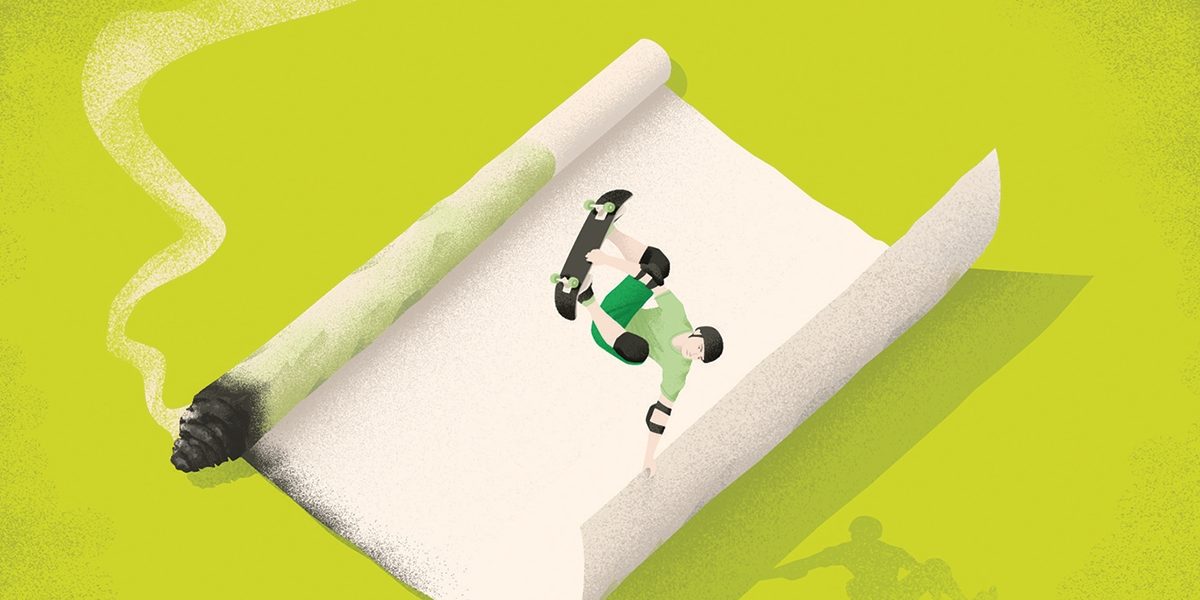Business & Development
It’s High Time
Recreational marijuana in Maryland might not be a question of if, but when.
NOW THAT THE MEDICIAL INDUSTRY is up and running, the discussion turns to marijuana’s recreational future. The expectation tends to be that the natural next step would be weed for all, following in the footsteps of the likes of California, Colorado, and even Canada. Will it ever be legal in the state of Maryland? The answer remains to be seen.
Of course, there’s no denying that marijuana has gone mainstream—what with celebrities like the Obamas and Martha Stewart divulging their pot-soaked secrets and one of the best shows on HBO, High Maintenance, following the adventures of a friendly drug dealer. Two out of three Americans now support legalizing cannabis for recreational adult use, according to recent Pew and Gallup surveys, and Maryland residents agree, with 57 percent of residents voting in favor in the latest Goucher Poll. Even Governor Hogan has said it’s worth looking into.
Locally, the idea isn’t that new, either. Over the past few years, lawmakers have introduced several bills to put recreational cannabis on the table, and in some lights, it’s easy to see why. A legal, taxed industry creates a new form of economic income for the state; Colorado raked in $200 million in tax revenue in 2018. And it creates jobs, with new positions expected to employ some 250,000 people nationwide by 2020. It has also been linked to less crime and fewer arrests, which could benefit a city plagued with the former and where the latter still disproportionately affects African Americans, as recently reported by the Baltimore Fishbowl and the Baltimore Institute for Nonprofit Journalism. (Shortly thereafter, Baltimore State’s Attorney Marilyn Mosby announced that the city would no longer prosecute possession charges, following similar measures in Philadelphia and New York.) And some studies have even indicated that legal weed could have a positive impact on the opioid crisis.
“Adult use is something that requires thoughtful policy to make sure that it’s done properly.”
But not everyone welcomes legalization with open arms. There are the legitimate concerns of increased car crashes in states that have legalized cannabis and law enforcement’s lack of a reliable detection tool, like a breathalyzer for drunk drivers (though they are in development). And some current players in Maryland’s medical market fear what recreational marijuana might mean for their bottom line. “What we’ve seen in other states is that medicinal programs effectively evaporate when adult use comes into play, especially in terms of innovation, because there’s no economic incentive to invest,” says Michael Bronfein, CEO of Curio Wellness. “And if you’re investing the kind of money that we are—we bargained for a medicinal marketplace, not one leading to recreational. Adult use is something that requires thoughtful policy to make sure that it’s done properly.”
Meanwhile, the Maryland Medical Cannabis Commission takes a neutral stance. “We are strictly a medical cannabis commission, so any questions directed to us about legalization are misguided,” says Joy Strand, the MMCC’s director. “We’ll take legislation as it comes, but we’d like to get medical operating smoothly before we add in legalized adult use.”
Still, it looks like the supporters won’t be backing down anytime soon. Multiple pieces of legislation aimed at legalization are on the docket, including one push to leave it up to us—by putting it on the ballot in 2020. “I think we’re just up against a clock,” says Delegate Nick Mosby, who co-sponsored the bill and sits on the legislative group charged with studying legalization in Maryland. “The energy is there. I would not be surprised if it’s passed this term.”
